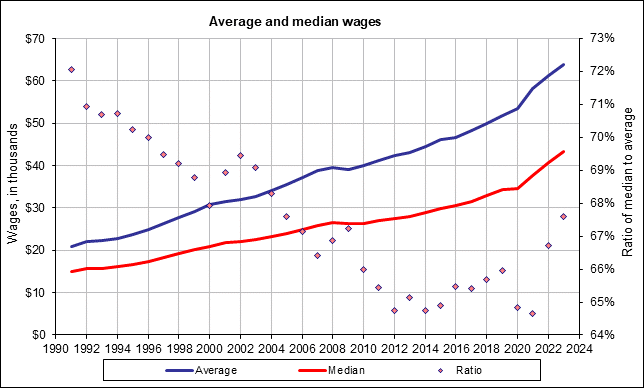I don't want to drag this too far off into politics, but from the economics side on wages I would like to point out a couple of things:
1) Those minimum wage workers have jobs because they produce more for the employer than they cost. These are typically entry level positions. Minimum wage or near-minimum wage employees tend to be unskilled, teenagers, or people with disabilities (blind, autistic, low-IQ, etc.). If the cost of that labor goes up substantially, it makes more sense to fire several low-skill employees and replace them with a kiosk and one mid-skill employee. Look at what's happened to check-out stands at Wal-Mart over the last decade. You get two actual cashiers (usually older women) and a couple of giant sections of self-checkouts, each staffed by 1-2 employees. WM wouldn't do that unless they believed it saved them money.
Minimum wage hikes have (citation needed, it's been a while) been associated with decreases in employment opportunities for teenagers and others who fill entry-level jobs. If you are going to college and can get an internship, this doesn't matter. If you're lucky to get out of high school and have no support network, having a hard time finding a job to start with can really hurt your chances of getting started on life and staying out of poverty.
In some ways it's "better" and "more efficient" but there's also a human cost to those policy decisions, and it's usually overlooked by the front row kids who are involved in the discussions.
2) Hourly wages aren't the total cost of employment. Add 30-35% on to the hourly rate to get the company's total cost of employment in the US. This includes taxes (SSA/Medicare), unemployment-related costs (not sure), insurance, payroll/HR, and whatever benefits are included. This is the number my boss uses.
To cycle this back from economics to D&D, I like looking for the unintended consequences of decisions, and at least making them visible to the players. You introduced magi-tech cloth spinning? Great, everyone has more and cheaper clothes, but now 80% of women have 6 hours per day of time that's now unproductive and not generating income or value for their household. Did you just push them below the survival line? If so, they may be upset and try to smash your new factory. Fixing the problem via Fireball will just get you thrown out of town.



